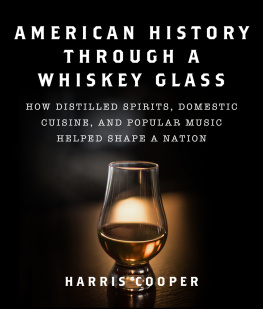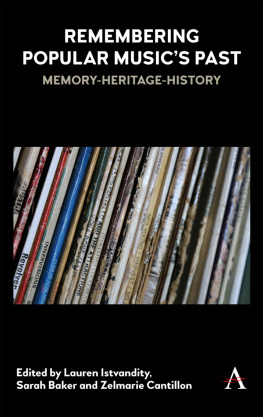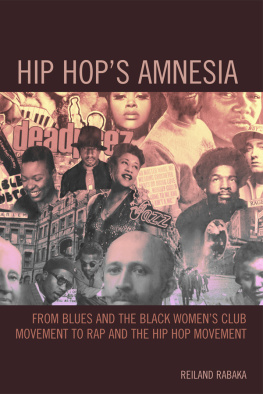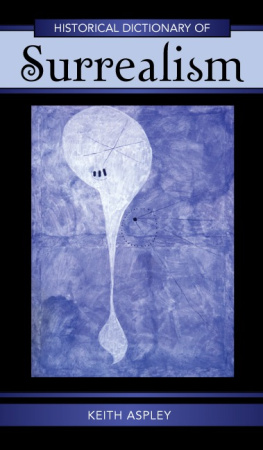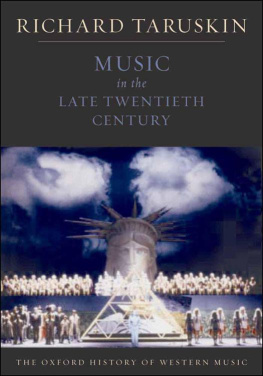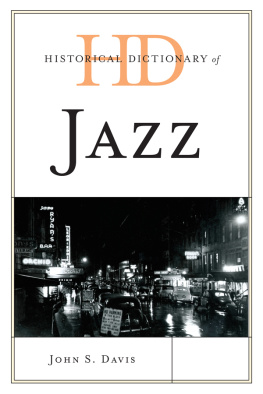www.upress.state.ms.us
The University Press of Mississippi is a member of the Association of American University Presses.
Copyright 2016 by University Press of Mississippi
All rights reserved
Manufactured in the United States of America
First printing 2016
Library of Congress Cataloging-in-Publication Data
Names: Njoroge, Njoroge, author.
Title: Chocolate surrealism : music, movement, memory, and history in the circum-Caribbean / Njoroge Njoroge.
Description: Jackson : University Press of Mississippi, [2016] | Series: Caribbean studies series | Includes bibliographical references and index. | Discography: pages
Identifiers: LCCN 2015043008 | ISBN 9781496806895 (hardback : alk. paper)
Subjects: LCSH: Folk musicCaribbean AreaHistory and criticism. | BlacksCaribbean AreaMusicHistory and criticism. | African diaspora.
Classification: LCC ML3565.N56 2016 | DDC 780.89/960729dc23 LC record available at http://lccn.loc.gov/2015043008
British Library Cataloging-in-Publication Data available
Acknowledgments
This work is dedicated first and foremost to my family: my parents, Mbugua and Josephine Njoroge, without whose loving support none of this would have been possible, and my sister, Wanjiku Njoroge, my closest friend and confidante whoboth literally and figurativelytaught me how to read.
There have been many, many people who have contributed to my personal growth and intellectual development; here I can list only a few. George Ydice was a steady source of encouragement and critical feedback, as well as a good friend and colleague. Michael Gomezs pioneering work on the African diaspora has not only helped reconfigure the field but has also been a model for my scholarship. Adam Green consistently challenged me to deepen my analyses, and his exacting critiques helped bring this writing to fruition. The insights, knowledge, and enthusiasm of Jairo Moreno played a vital role in the projects completion, and it was a pleasure to have his formidable academic and musical arsenal (generously) at my disposal. Christopher Winks has been a wonderful friend whose encyclopedic erudition I have had the great privilege of benefiting from through countless and ongoing conversations. Finally, Steven Feld has been a true inspiration (intellectually and musically); it is difficult to express my gratitude for the many ways in which his brilliance, guidance, kindness, and support have been crucial to this endeavor.
The ideas and themes in and around this work actually began to develop through writings and discussions with David Anthony, Angela Davis, Herman Gray, and Nathaniel Mackey. Each in their own way has contributed much to the project, and the seeds sown have been cultivating for many years. Manthia Diawara, Robin D. G. Kelley, Tricia Rose, Brent Hayes Edwards, Fred Moten, and Steven Gregory were all and always supportive. In addition, (the late) Juan Flores and Miriam Jimnez Romn have been good friends and key interlocutors throughout. I must also give special thanks to Timothy Reiss and Patricia Hilden for their support, assistance, encouragement, and feedback. Inspiration and encouragement also came from Ngg wa Thiongo and Kamau Brathwaite.
The Black Marxist Study Group in New York helped my thought immensely and the book project was refined and strengthened through hours of conversation, argument, and hilarity with Peter Hudson, Ifeona Harrison, Ted Sammons, Forrest Hylton, Seth Markle, Sobukwe Odinga, Daniel Rood, Hillina Seife, Khary Polk, Natasha Lightfoot, Rich Blint, Tanya Huelett, Chris Winks (again), Adam Waterman, Fanon Howell, Erik McDuffie, and Michaela Harrison. I also had the privilege of learning at the feet of the master, C. Daniel Dawson, who was generous to a fault in sharing his unrivalled expertise.
Here at the University of Hawaii, Manoa, I must thank a number of colleagues: Paul Lyons, Monica Ghosh, Cindy Franklin, Laura Lyons, Charles Lawrence, Mari Matsuda, Mike Shapiro, David Hanlon, David Chappell, Marcus Daniel, Vina Lazona, Matthew Romaniello, Ned Bertz, Noelani Arista, Shana Brown, Karen Jolly, Herb Ziegler, Margot Hendrickson, John Zuern, Craig Howes, Stan Schab, John Rosa, Ned Davis, Leonard, Andaya, Hokulani Aiku, Matthew Lauzon, Wengsheng Wang, Yuma Totani, Paul Holtrop, Lori Yancura, Gary Pak, (the late) Jerry Bentley, and, of course, my dear friend Giovanni Vitello. I would also like to give special thanks to Craig Gill, editor-in-chief of the University Press of Mississippi, for his patience and unflagging support in making this book possible. And thanks to the anonymous readers for their exacting and insightful commentary.
I must make mention of my extended family in New Jersey. Steve and Dequandra Fradkin, and their beautiful children Asha, Nadia, Ivan, Amanda, and Steve Jr., have always freely given much love and support (and, often, an open home and a hot meal). Jamie Wilson has been a friend, a brother, and a model of pedagogy, fortitude, and general right on-ness. Victor Viesca and Melany De la Cruz have been compaero/as, collaborators, and indispensable allies from beginning to end (en el espritu de la resistencia). Kristy Ringor, Greg Chun, and Alice have been true forces for good in the world and our lives. The genius, wit, and friendship of my comrade, colleague, and co-conspirator Kobi Abayomi have been indispensable to my sanity and insanity. Stan Pyrzanowski has been a true friend and soul brother and I am grateful for his music and companionship. Lastly and most importantly, I must thank my partner in life and love, Suzanna Reiss.
What do I have that I have not received?
Chocolate Surrealism
In those days it was either live with music or die with noise, and we chose rather desperately to live.
Ralph Ellison
Black music has always been a tremendous source of information and inspiration for musicians, dancers, and music lovers. Listening to the music opens new worlds and windows onto the rich history of black music, society, and struggle in the circum-Caribbean, and provides a rich archive of the creative musical genius of the African diaspora. Music always expresses the interrelationships of movement, memory, and history, but this is preeminently true of the music of the African diaspora. This book uses music as both optic and focus, to examine and rethink both the modes of black cultural production and social formations in the African diaspora. The music has always been both an expression of black life and part of the philosophy that developed and emerged with that life, as history and as art (Baraka 2009, 9).
This book attempts to uncover the ways in which these black identities (ethnic, racial, religious, sociocultural) were constructed, transmitted, fashioned, and refashioned in and through music and music-making in order to create habitable spaces within the tumult of New World experiences. What is this black in black music, and what can the music relate about the maintenance and creation of Afro-diasporic cultural identities, memories, histories? As Marx has written, it is not the consciousness of men that determines their existence, but instead their social existence that determines their consciousness. What can the musical forms and rhythms of the African diaspora tell us about consciousness and existence? Music offers both historiographic and musicological spaces of inquiry; but at the same time, as an aesthetic experience music is not entirely accessible through either methodology. The analysis of the development of New World black music reveals the complexity of stylistic evolution, historical change, and the interrelations between consciousness, culture, and material history.


